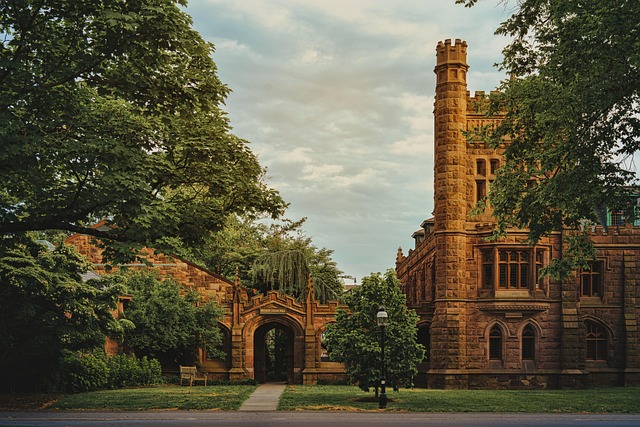Elderly sexual assault in New Jersey nursing homes is a serious issue due to resident vulnerability, power imbalances, and potential staff exploitation. Robust safety measures, including 24/7 surveillance, access control, and staff training on consent and suspicious behavior recognition, are vital prevention tools. Open dialogue about privacy and consent, encouraged by elderly sexual assault lawyers NJ, empowers residents and staff alike. New Jersey has stringent laws with mandatory reporting to protect vulnerable elders, while elderly sexual assault lawyers NJ guide victims' families through legal processes and advocate for justice.
“In New Jersey, ensuring the safety and dignity of elderly residents in nursing homes is paramount. This article explores comprehensive steps to prevent elderly sexual assault within this vulnerable population. From understanding the unique risks to implementing targeted security measures, we delve into strategies that empower staff through training, foster open communication, and highlight legal obligations. With an emphasis on the role of elderly sexual assault lawyers NJ, these measures aim to create a safer environment for residents and hold institutions accountable.”
Understanding Elderly Sexual Assault Risks in NJ Nursing Homes

Elderly sexual assault in nursing homes is a serious concern in New Jersey, with potential risks lurking within the care environments of many facilities. Understanding these dangers is the first step in prevention. The vulnerable nature of elderly residents, coupled with certain power imbalances and the possibility of staff exploitation, creates an unfortunate setting for such crimes to occur.
In New Jersey, where elderly sexual assault lawyers often see cases stemming from nursing homes, awareness is key. Residents may be more susceptible due to age-related physical and cognitive impairments, leading to a reduced ability to consent or report incidents. Staff members who exploit this vulnerability can take advantage of their positions of power, making it crucial for facilities to implement robust safety measures.
Training and Education: Empowering Staff to Prevent Assaults

Training and education play a pivotal role in preventing elderly sexual assaults in nursing homes. Staff members, from nurses to caregivers, must be equipped with the knowledge and skills to recognize potential risks and respond accordingly. Regular workshops and training sessions can help them identify signs of distress or abuse among residents, understand consent dynamics, and learn effective communication strategies.
Empowering staff through education enables them to create a safer environment for elderly individuals under their care. It encourages open discussions about personal boundaries and respect, fostering an atmosphere where any form of inappropriate behavior is immediately addressed. Furthermore, training can help staff identify and report suspicious activities, ensuring that potential incidents are promptly investigated and stopped by elderly sexual assault lawyers NJ when necessary.
Implementing Security Measures for Vulnerable Residents

Implementing robust security measures is a critical step in protecting vulnerable elderly residents from potential sexual assault in nursing homes. These measures should include 24/7 surveillance, access control systems, and regular security assessments to identify and mitigate risks. Staff training on recognizing suspicious behavior and reporting protocols is also essential.
Nursing homes in New Jersey can employ advanced technology like motion sensors, CCTV cameras, and visitor tracking software to monitor activities within the facility. Restricting access to common areas and resident rooms further ensures privacy and safety. Regular security audits and updates to security policies can help keep up with evolving threats, making it a continuous effort involving both staff and family involvement for the elderly sexual assault lawyers NJ residents rely on.
Open Communication: Encouraging Resident Privacy and Consent

Encouraging open communication about privacy and consent is a vital step in preventing elderly sexual assault in nursing homes. Residents should feel comfortable discussing their personal space and boundaries with staff, family members, and visitors. This includes clear discussions about what makes them feel safe and respected, as well as any concerns they may have. By fostering an environment where residents can openly communicate their needs and preferences, nursing home staff can better understand and accommodate them, reducing potential triggers for sexual assault.
Elderly sexual assault lawyers in NJ emphasize the importance of informed consent. This means ensuring that residents fully understand and voluntarily agree to any intimate interactions or medical procedures. Staff should provide clear explanations in simple language, allowing residents to ask questions and make informed choices about their care. Regular training for staff on consent, privacy, and respect can help create a culture where these issues are taken seriously and addressed proactively.
Legal Rights & Responsibilities for Elderly Protection in NJ

In New Jersey, the protection of vulnerable elders is a serious matter with strict legal implications. The state has comprehensive laws in place to prevent and address elderly sexual assault, ensuring the safety and dignity of its residents. Elderly sexual assault lawyers NJ are well-versed in these regulations, which include mandatory reporting by healthcare facilities and staff. Failure to comply can result in significant legal consequences for nursing homes and their employees.
Understanding one’s rights and responsibilities is crucial for both elderly individuals and their families. New Jersey’s laws provide a framework to hold perpetrators accountable while offering support services to survivors. Elderly sexual assault lawyers play a vital role in guiding victims’ families through this process, ensuring they receive the justice and care they deserve.





